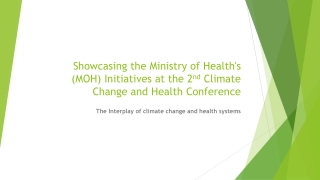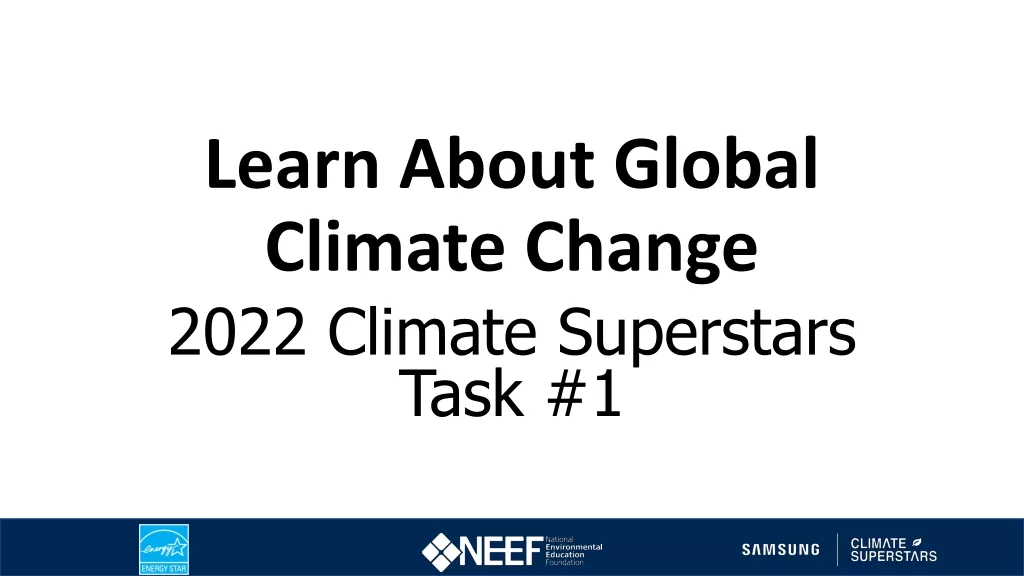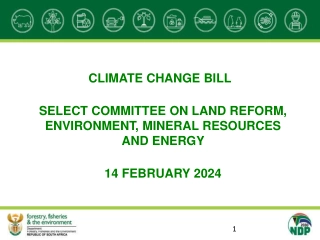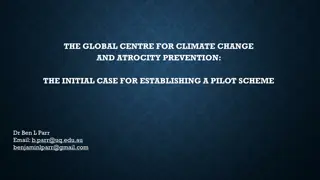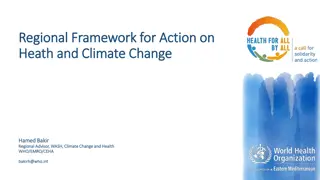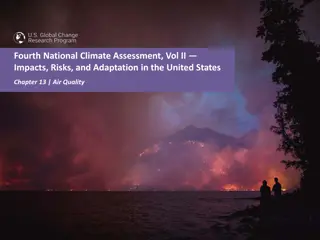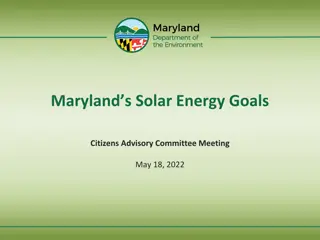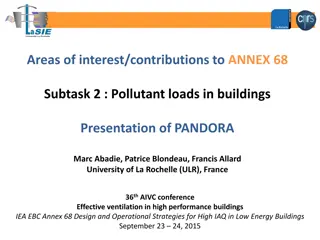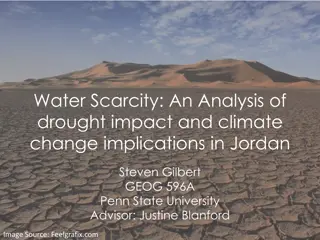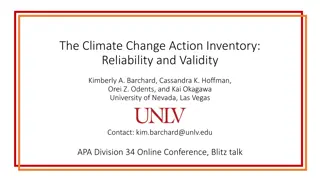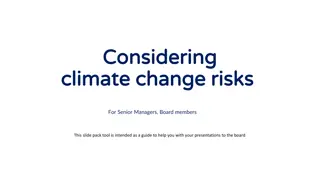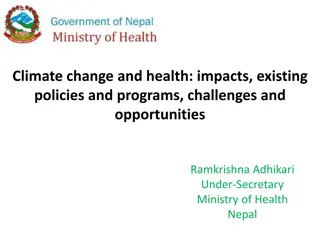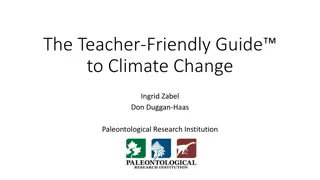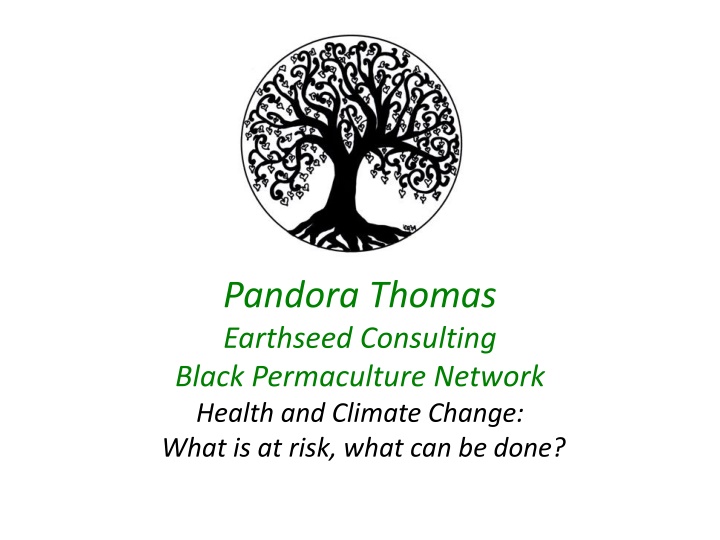
Empowering Communities of Color for Resilience and Justice in the Face of Climate Change
This comprehensive presentation explores the disproportionate impacts of climate change on communities of color, focusing on African Americans. It highlights the unique vulnerabilities faced by these communities, such as higher rates of health issues, economic insecurity, and exposure to environmental hazards. The solution proposed involves empowering individuals through programs like Mandela Welcome and Permaculture Design, aiming to foster resilience and community ownership. Pathways to Resilience offers a holistic approach to address the challenges faced by individuals re-entering communities after incarceration. Ultimately, the goal is to create a more just and sustainable future for all.
Download Presentation

Please find below an Image/Link to download the presentation.
The content on the website is provided AS IS for your information and personal use only. It may not be sold, licensed, or shared on other websites without obtaining consent from the author. If you encounter any issues during the download, it is possible that the publisher has removed the file from their server.
You are allowed to download the files provided on this website for personal or commercial use, subject to the condition that they are used lawfully. All files are the property of their respective owners.
The content on the website is provided AS IS for your information and personal use only. It may not be sold, licensed, or shared on other websites without obtaining consent from the author.
E N D
Presentation Transcript
Pandora Thomas Earthseed Consulting Black Permaculture Network Health and Climate Change: What is at risk, what can be done?
Climate Change disproportionately impacts those that are least responsible- namely people of color. African Americans 1. Emit 20% less carbon dioxide emissions than whites and nearly 18% less than all other Americans 2. 71% of African Americans live in counties in violation of federal air pollutions standards and 78% live within 30 miles of coal-fired plant. They are also more likely to live near a landfill or incinerator 3. Have 36% higher rate of asthmas(and die at twice the rate than whites) 4. Have greater risk of heat related deaths(which will increase by at least 90% due to climate change) due to being more likely to live in inner cities 5. Have a higher tendency to live in coastal areas, which will be impacted as sea levels rise 6. Experience food insecurity rate of 25.7%, much higher than national average which is 14.6% 7. Increases in economic insecurity can drive rises in crime in all communities 8. Natural disasters have shown to result in spikes in physical and sexual violence against women and girls
THE PROBLEM Tens of thousands of people released from California Prisons into a broken system of Re- Entry
THE SOLUTION Tens of thousands of individuals Re-Entering our communities!
THE SOLUTION Mandela Welcome + Permaculture Design
Pathways to Resilience Green Life/ Planting Justice/ Earthseed Impact Hub Oakland/ Merritt College SELC/United Roots -5 month training program Ceremony and Ritual -Circles of Reconnection -Case Management and Stipends -Permaculture Design Course -Social Enterprise Immersion -Community Ownership -Community Immersion -Capstone Experience -Media Documentation -Graduation and Celebration -Job and Apprenticeship Placement
Lessons and principles from natural systems FEED WHAT YOU WANT TO SEE GROW: Create the conditions that will favor the things or situations you want, rather than focusing on what we don t want How are we framing the issue (are we defining something only as a problem instead of also seeing the potential) OBSERVE AND INTERACT(OR LISTEN) with and to existing networks, groups, communities BUILD FROM THE GROUND UP-Respect the roots of culture, place, and people. How are we functioning alongside and in support of existing relationships and structures? What seeds have already been planted How do we tend existing healthy systems What existing leadership potential or messages can we leverage ENHANCE SOCIAL EDGES AND ECOTONES in mutually beneficial ways (the boundary between two biological communities and the transition zone between two ecological communities- the result can have greater fertility, productivity and diversity than either of the other two)
5. Cultural Competence IS a part of ecological competence: Awareness of your own cultural view Awareness of your attitude towards cultural difference Knowledge of different cultural practices and worldviews Cross-cultural skill building How can we build relationships between issues and make the links in our work?
Articles/Authors cited Starhawks Common Sense Permaculture Principles http://www.thefifthsacredthing.com/2011/08/1 6/starhawks-common-sense-permaculture- principles/ The Hidden Consequences of Climate Change: www.action.naacp.org
Thank you and have a beautiful day!! www.pandorathomas.com

